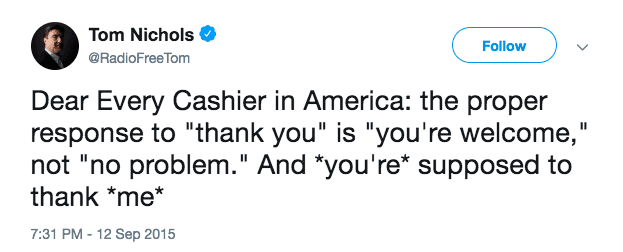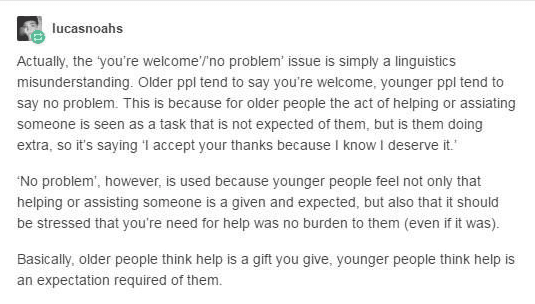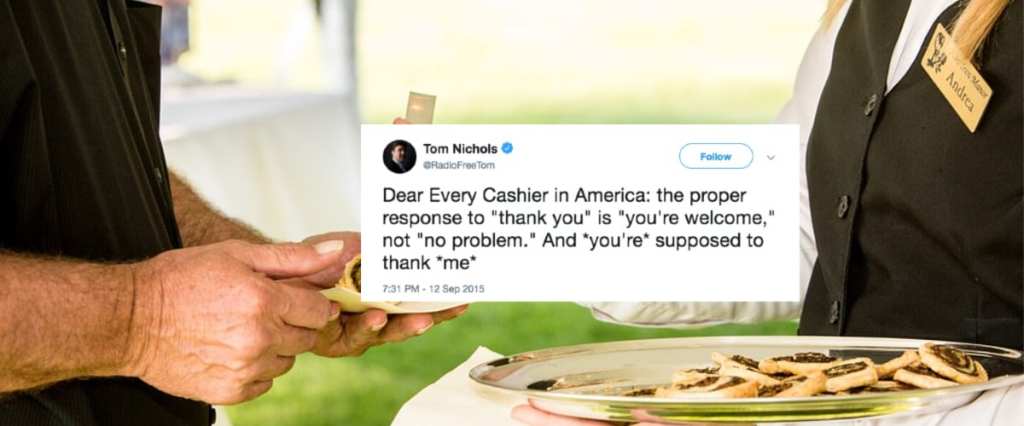Trending Now
There’s no question that millennials and younger generations take a lot of flak from Boomers and Gen X’ers for doing things differently that they did “back in the day.” But come on, not everything should be taken as a personal affront – like how the youth respond to “thank you”.
Professor Tom Nichols branded himself the quintessential grumpy old man back in 2015 when he tweeted this angry response to what he perceived as a rash of poor customer service.

Image Credit: Twitter
“Dear Every Cashier in America: the proper response to ‘thank you’ is ‘you’re welcome,’ not ‘no problem.’ And *you’re* suppose to thank *me*”
He received a number of responses, the vast majority mocking his attitude, but it one person’s detailed and thoughtful reply makes a lot of sense.
Bottom line? It’s not about being polite, it’s that our views on gratitude are evolving.

Image Credit: Imgur
Here’s that text in case you can’t read the image…
“Actually, the “you’re welcome/no problem” issue is simply a linguistics misunderstanding. Older ppl tend to say “you’re welcome,” younger ppl tend to say “no problem.” This is because for older people the act of helping or assisting someone is seen as a task that is not expected of them, but is them doing extra, so it’s them saying, ‘I accept your thanks because I know I deserve it.”
“No problem, however, is used because younger people feel not only that helping or assisting someone is a given and expected but also that it should be stressed that your need for help was no burden to them (even if it was).”
“Basically, older people think help is a gift you give, younger people think help is a requirement.”
The explanation, of course, doesn’t apply across the board.
There are people in every generation that view service as “no problem” and people who feel like they are doing others a favor, but the idea that “no problem” is somehow disrespectful just isn’t right.
The people who use it are, quite genuinely, sharing that helping you out is “no problem.”
Maybe, if we realized that doing the right thing – simple or not so much – is actually “no problem” we’d have fewer problems in general.
I mean, maybe not, but it’s worth a shot.






